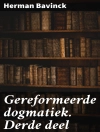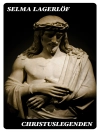In ‘The Woman’s Bible, ‘ Elizabeth Cady Stanton boldly reinterprets biblical texts from a feminist perspective, seeking to reclaim the narrative surrounding women’s roles in religious scripture. Written during the late 19th century—a period marked by burgeoning women’s rights movements—Stanton employs a critical literary style that combines theological analysis with personal reflection. The book challenges patriarchal interpretations of the Bible, offering readers a radical approach that encourages a reassessment of traditional religious doctrines that historically marginalized women. Stanton’s work not only addresses scriptural passages but also serves as an essential commentary on the socio-political context of her time, aiming to spark dialogue on the intersection of gender and faith. Elizabeth Cady Stanton (1815-1902) was a prominent suffragist, social activist, and a key leader of the American women’s rights movement. Her experiences advocating for women’s rights and social justice undeniably influenced her writing. Stanton’s deep understanding of religious texts and her passionate commitment to female empowerment culminated in this significant work, which was controversial in its day and has continued to inspire feminist discourse for over a century. ‘The Woman’s Bible’ is not only a critical text for understanding the evolution of feminist theology but also a heartbreaking reminder of the struggles women faced. It is indispensable reading for those who are interested in religion, women’s studies, and social justice, encouraging modern readers to reconsider the narratives that have shaped societal attitudes towards women in faith.
Over de auteur
Elizabeth Cady Stanton (1815-1902), a pioneer for women’s rights, was a prominent figure in the early feminist movement in the United States. Her intellectual prowess and oratorical skills positioned her at the forefront of the 19th-century fight for women’s suffrage and equality. Stanton possessed a revolutionary zeal for expanding women’s legal rights and social standing, which she adeptly expressed through her writings and speeches. ‘The Woman’s Bible’, published in two parts (1895 and 1898), exemplifies her challenge to the traditional interpretation of biblical texts that, in her view, oppressed women. In this groundbreaking work, Stanton and the Revising Committee critique and analyze scripture from a feminist perspective, aiming to counter the use of biblical justification for gender prejudice. Stanton’s literary style is characterized by its clarity, cogency, and boldness, as well as its appeal to logic and human rights. Her rhetoric was not merely persuasive; it ignited debate and spurred many to action. She co-authored, with Susan B. Anthony and Matilda Joslyn Gage, the first three volumes of ‘History of Woman Suffrage’, another significant contribution to feminist literature that documents the monumental struggle for the women’s vote. Her written legacy includes numerous speeches, articles, and books that continue to inspire and inform gender equality discourse to this day.












